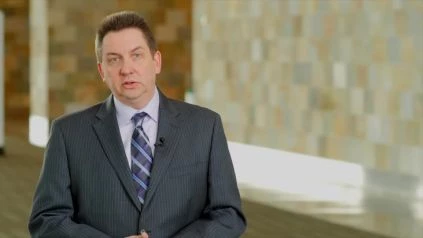Dr. Dale Shepard, MD of Cleveland Clinic gives an update on the The International Watch & Wait database (IWWD) for rectal cancer. Here is the Background: In 2014 the IWWD was established by EURECCA and the Champalimaud Foundation. The main goal of this database is to collect all available data to expand knowledge on the benefits, risks and oncological safety of organ preserving strategies in rectal cancer. In April 2015 the database was opened for data registration. Methods: An international multicentre observational study. Data was collected by participating centres and stored in a highly secured NEN7510 certified and encrypted research data server. Each centre always retains full ownership of their data. Results: In August 2016 the database included 775 patients from 11 countries and 35 participating institutes. 90% of all patients were included because of a clinical complete response (n = 679). All other reasons for a watch-and-wait regimen were excluded for the present analyses. As shown in table 1, imaging modalities used to assess response after induction therapy were variable. Induction treatment consisted of chemo-radiotherapy in 90% of cases. Median follow-up time is 2.6 years (range 0-24 years). Local regrowth occurred in 25% (n = 167) of all patients, of which 84% in the first 2 years of follow-up. A local regrowth was located endoluminal in 96% (n = 161) and in the loco-regional lymph nodes in 4% (n = 7). Distant metastasis occurred in 7% (n = 49). The overall 3 year-survival of all patients was 91% and for patients with a local regrowth this was 87%. Conclusions: This is the largest series of patients with rectal cancer in which surgery was omitted after induction therapy. These data illustrate differences in induction therapy as well as imaging strategies and provide some crude outcome data. Further data collection on the Watch-and-Wait strategy for rectal cancer is needed to increase knowledge on oncological safety of omitting surgery. This may contribute to international consensus on staging, treatment and surveillance guidelines in rectal cancer care.
[the_ad id="32629"]

